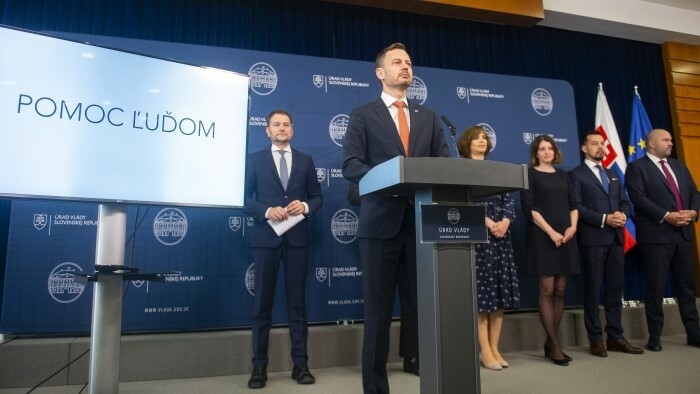The Government plans to spend €260 million to help people deal with extreme price growth this year, while the figure should be over €1 billion next year, Prime Minister Eduard Heger announced at a news conference on Thursday. The increased government spending to help people deal with extreme price growth should be largely covered by increases in taxes for some 100 extremely rich companies, Finance Minister Igor Matovic announced. The increases should apply neither to value-added tax, nor to income tax on employees or the self-employed, he stated. According to Matovic, although the state will increase its expenditure on these benefits by about €1 billion next year, it will compensate the amount with savings and new permanent revenues.
The aid provided to the people to fight inflation should be targeted, repeated as well as financially appropriate to the situation, President Zuzana Caputova said on Thursday. She added that she had not yet been able to get acquainted in detail with the Government's measures to help the people but she was glad that the Cabinet had finally come up with them.
The head of the extra-parliamentary Voice-SD party Peter Pellegrini considers the one-off measures introduced by the Government earlier on Thursday to be insufficient, as they do not comprehensively include seniors or a large number of working people. Pellegrini welcomes systemic measures to help families with children if the Government is convinced that it can ensure the financing of these expenditures.
The extra parliamentary Slovak National Party has called on the Government to reintroduce the banking levy that it scrapped in 2020. The party states that the current governing coalition scrapped a banking levy which was bringing €300 million each year into the state coffers. Today, when the Government is seeking funds to help families, this money was "born" to be used for helping the citizens of Slovakia, claimed the SNS, adding that the sum could compensate for increases in the prices of food, fuel and energy.
Slovakia's gross debt climbed to a record €61 billion or 63 percent of gross domestic product (GDP) last year. The Finance Minister pointed out that the published results of the state debt for the previous year should also be interpreted from the point of view of Slovakia's net debt. This is significantly lower because the Government had a cash balance of about €10 billion at the end of last year.
Source: TASR

